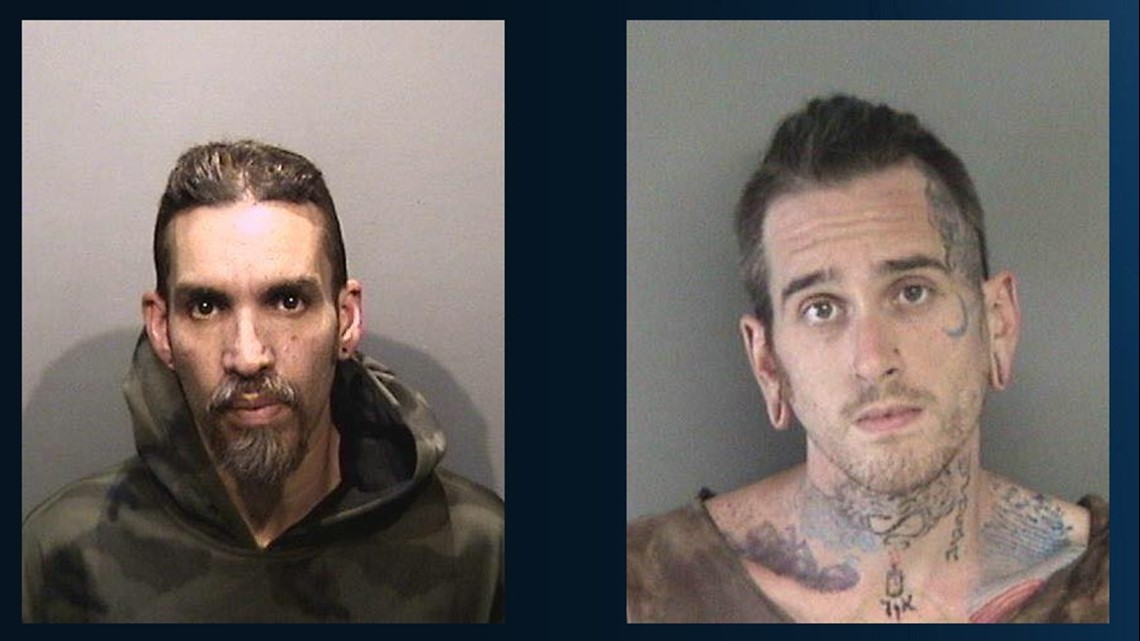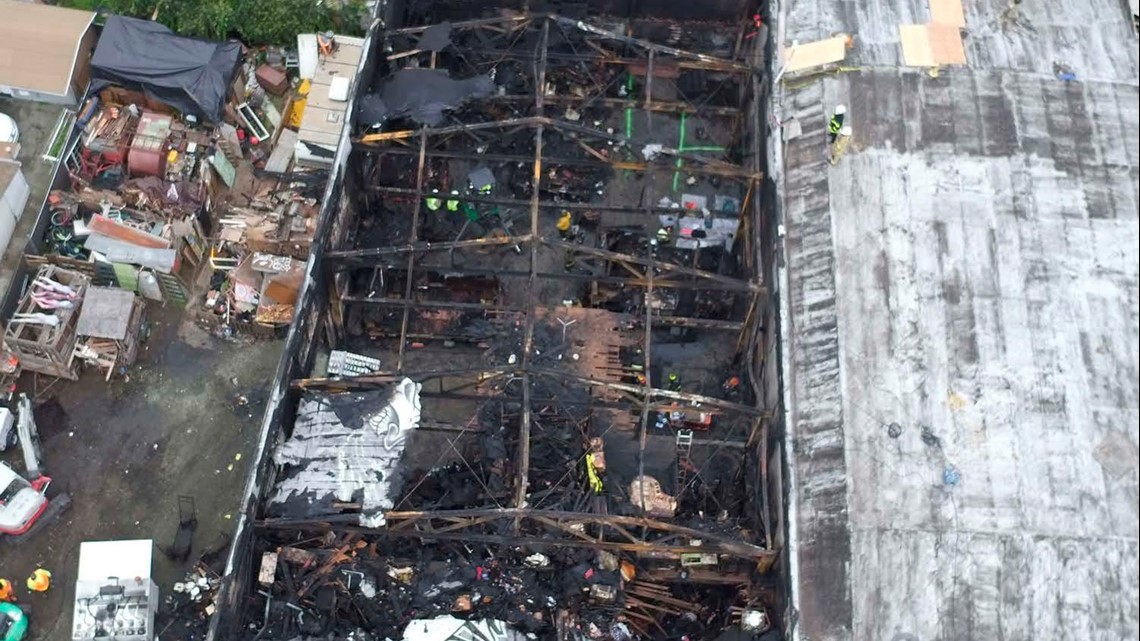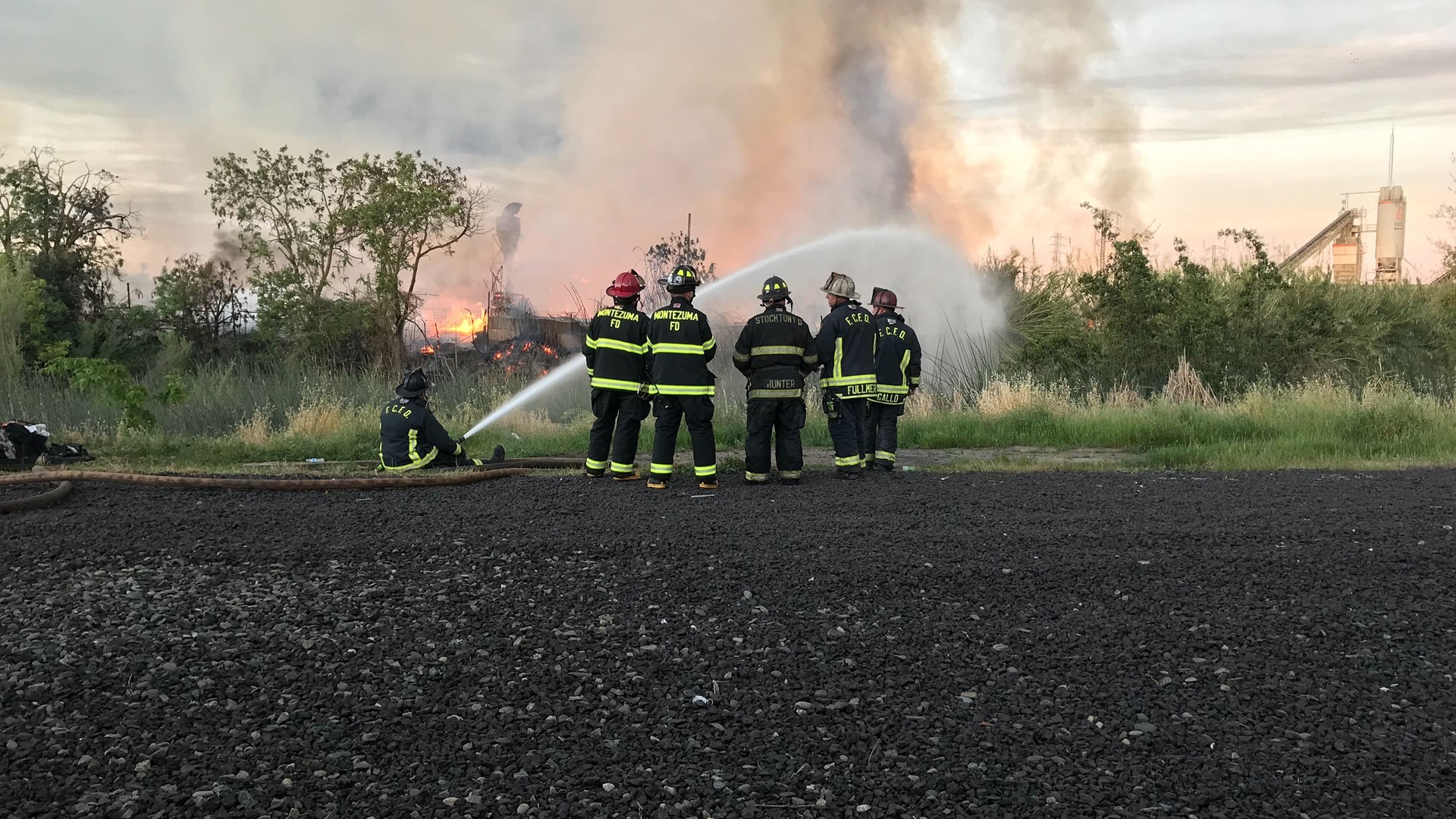OAKLAND, Calif — A defense attorney told jurors Wednesday that his client is a family man and artist wrongly charged with a California warehouse fire that killed three dozen people.
"My client is not some despot, cult leader, manipulator of the truth," defense lawyer Tony Serra said of Derick Almena, who is charged with 36 counts of involuntary manslaughter in connection with a Dec. 2, 2016, Oakland fire in a warehouse that occurred during an unpermitted concert.
Serra blamed Oakland building department officials for failing to inspect the structure annually as required by city law.


He also said arson is to blame for the fire. U.S. Bureau of Alcohol, Tobacco, Firearms and Explosives investigators could not determine the cause.
Almena, 49, rented the warehouse, and prosecutors say he illegally converted it to a residence and entertainment venue. Max Harris, 29, is also charged. Prosecutors say he helped Almena collect rent and schedule concerts.
A prosecutor on Tuesday painted an emotional and dramatic picture of three dozen partygoers dying in a fast-moving fire during an unpermitted concert.
Alameda County prosecutor Casey Bates recounted for the jury a survivor's harrowing tale of mass panic and chaos as choking smoke, zero visibility and a raging fire engulfed the Oakland warehouse illegally converted into a residence and entertainment venue.
Bates said a survivor plans to testify that he lived by jumping through a second-story window while the majority of attendees couldn't find exits in time.
Almena and Harris have been jailed since their arrest in June 2017. Prosecutors say Almena rented the warehouse, and Harris acted as "creative director," helping book concerts and collect rent.
The two defendants are accused of failing to provide adequate safety equipment, exits and signage.
A fire alarm went off that night, but no one heard it, Bates said. The warehouse lacked sprinklers to slow the blaze so people had time to escape, he said.
"They died because they had no notice, no time and no exits," Bates said.
Family members wept and clutched each other as Bates read the name and showed a photo of each victim.
In his opening statement, Harris' attorney, Curtis Briggs, sought to distance his client from Almena and raised the possibility of arson as he tried to shift blame to others.
Briggs said he will call three witnesses who will testify about seeing strangers near the spot where the fire started in the rear of the warehouse. He also downplayed Harris' title of "creative director," telling the jury his client was a hired hand with the responsibilities of a janitor.


Prosecutors say the defendants filled the warehouse with highly flammable furniture, art pieces and other knickknacks that made it difficult for visitors to quickly find exits.
They both pleaded no contest to 36 counts of manslaughter last summer. But a judge scuttled the plea deal after victims' families objected to the sentences as too lenient.
Almena agreed to take responsibility in exchange for a nine-year sentence, and Harris agreed to a six-year term.
Judge James Cramer said he rejected the deal because he felt Almena did not show remorse. Prosecutors insisted the plea bargains were a package deal, so Cramer reluctantly rejected Harris' agreement as well, though the judge said he felt Harris was remorseful.
The men could face up to 36 years each if convicted on all counts.

